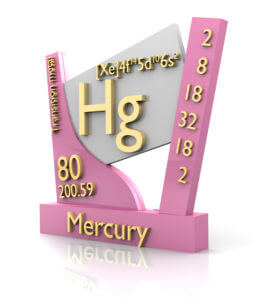We often hear that mercury causes bacterial overgrowth. Yet it seems to defy logic, mercury kills bacteria*.
I’ve looked several times and really haven’t found any studies showing that high levels of mercury cause unwanted bacterial overgrowth.
I think this got started by a correlation, people with high mercury levels have high levels of bad bacteria and low levels of good bacteria. At first glance the correlation seems to indicate that high levels of mercury caused the increase in bad bacteria and killed off the good bacteria.
So I did some digging and have come across several research studies that indicate that that the opposite is true. When our good bacteria are killed off (by what ever means), mercury levels in the blood and stool increase. A lack of good bacteria caused high mercury levels. How is that?!?
Let’s assume antibiotic use as our example. Someone is prescribed a high dose antibiotic for an infection. This kills off the good bacteria pretty quickly. Antibiotic use actually allows bad antibiotic resistant strains to flourish. To make things even worse, once the person ends the antibiotics there are no defensive beneficial bacteria left to prevent more bad guys from moving in. Now another surprise, the high levels of mercury are not due to the bad bacteria, it is due to a lack of good bacteria.

Good bacteria detoxify mercury and other heavy metals. Several beneficial strains have genes to detoxify mercury. Here are just a few of the studies on the topic.
“The augmented use of certain oral antibiotics, such as ampicillin, also decreases the ability to excrete toxic metals into the feces. Ampicillin has been reported to reduce the excretion of inorganic mercury to 26% and that of total mercury to 60% in the feces compared with the excretion levels of control rats, which can be attributed to altered gut flora. Altered gut flora due to the administration of oral antibiotics has also resulted in the complete inability to excrete mercury in rats” — PMID # PMC4387705
“In vivo, the importance of bacterial demethylation for the elimination of mercury has been confirmed in studies where the suppression or absence of the GI microbiota was associated with lower faecal excretion of total mercury and with increased accumulation of mercury in most tissues, including the brain, the principal site of methyl mercury toxicity.” — Journal of Nature
“The long, biological half-time of methylmercury (45-70 days) is attributed to extensive enterohepatic recycling, which is interrupted when methylmercury is demethylated by gut microbiota and excreted in feces. Thus gut microbial function is important to detoxification via its role in human metabolism and elimination of methylmercury.” — NIH.GOV Grants
“The studies provided the first positive evidence for the use of probiotics to combat toxic heavy metal exposure in vulnerable human populations. The results comparing the short-term and long-term interventions (SAC versus PW) suggest that probiotic consumption does not have a fast-acting effect, as do DMSA or EDTA, but rather acts over the longer term… Experiments contrasting conventional with germ-free animals have shown the importance of the microbiota in protection against accumulation of mercury and also lead and cadmium… In summary, this work has demonstrated the potential value of long-term probiotic-based interventions to counter mercury and arsenic exposure in vulnerable populations, particularly in pregnant women.” — American Society for Microbiology
“In another potential gut–ASD (autism spectrum disorders) connection, antibiotic use in rats has been shown to alter the animals’ gut microbiota to the point of almost completely inhibiting mercury excretion. Because mercury toxicity is a leading suspect behind ASDs, some researchers hypothesize that high use of antibiotics likewise may inhibit children’s ability to excrete the metal, increasing the risk of these disorders. “Specifically,” wrote James B. Adams and colleagues in volume 70, issue 12 (2007) of the Journal of Toxicology and Environmental Health, Part A, “oral antibiotics will reduce the amount of normal gut flora (which demethylate methyl-mercury) and may increase the amount of yeast and E. coli (which methylate inorganic mercury), resulting in both higher absorption and decreased excretion of mercury.” — PMID#PMC2685866
“Antibiotic use is known to almost completely inhibit excretion of mercury in rats due to alteration of gut flora. Thus, higher use of oral antibiotics in the children with autism may have reduced their ability to excrete mercury, and hence may partially explain the higher level in baby teeth. Higher usage of oral antibiotics in infancy may also partially explain the high incidence of chronic gastrointestinal problems in individuals with autism.” — PubMed ID#17497416
So keep your microbiome happy! Those little critters are doing a lot of heavy lifting for you, each and every day, 24 hours per day.
All images posted by John Herron are either "Copyrighted John Herron", or are copyrighted by someone else and are used under license. So please don’t use them elsewhere, you’ll get in trouble.

 Phage Complete comes with a full 30 day money back guarantee, for U.S. purchases this includes the original shipping charges to you!
Phage Complete comes with a full 30 day money back guarantee, for U.S. purchases this includes the original shipping charges to you!